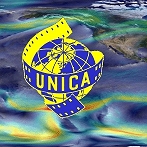
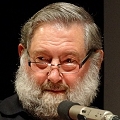 From Dave’s
Desk
From Dave’s
Desk
December 2016
We work for you … and we have been busy.
By now you will have received the Minutes of the 2016 General Assembly (Click here to read them.) Since then the committee met in Bratislava, hosted by Dr. Zuzana Skoludova.
GEORG SCHÖRNER RESIGNS
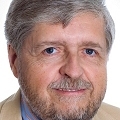 We
began on a sad note. We formally accepted the resignation of Dr.
Georg Schörner on health grounds. He had announced this in a
letter to the committee and the National Organisations. Much as we
valued him as Secretary-General, we prefer that he stay alive as a
friend for many years to come. He has also retired from his role as
secretary of VÖFA, the Austrian National Organisation.
We
began on a sad note. We formally accepted the resignation of Dr.
Georg Schörner on health grounds. He had announced this in a
letter to the committee and the National Organisations. Much as we
valued him as Secretary-General, we prefer that he stay alive as a
friend for many years to come. He has also retired from his role as
secretary of VÖFA, the Austrian National Organisation.
Georg volunteered to continue in office at UNICA until the end of December. We are looking for someone to take on the role, but that cannot be rushed. I welcome any suggestions.
The committee will share the duties for the start of 2017 until a suitable person can be found. In the meantime:
Please direct all messages intended for the
Secretary-General to me:
president@unica-web.com
Dave Watterson
186 London Road West
BATH BA1 7DQ
United Kingdom.
THE UNICA COMPETITION 2017
A stand-alone decision is easy to make. It is much harder when each decision has an impact on other ones. When we discussed the competition at the 2016 General Assembly, there were too many complications to handle easily. Eventually many decisions were left to the committee.
We listened to the views expressed, and took on board many ideas. We cannot please everyone, but the rules for 2017 should be clear. We will try these arrangements in 2017 and review them after the event.
Our competition is between National Organisations and is for non-commercial films.
There will be three categories, each of which will be assessed and awarded separately.
-
The MAIN category is for films on any theme, in any style by authors of any age, who are not included in categories 2 and 3.
-
The YOUNG UNICA category is for authors up to and including age 25, who are in full-time education of any kind – except the study of film making. The age restriction applies only to the author or authors and not to their cast or crew.
-
The FILM SCHOOL category is for students attending a course which teaches film making. Those authors may be of any age. This category is restricted to a maximum of two films in each national programme.
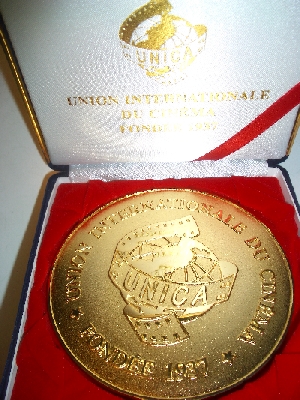
-
There are no formal restrictions on the amount of archive film included in a movie;
-
In each category there will be awards for best of category, Gold, Silver, Bronze and Diploma of Honour. There will be no award for “overall best film” in the competition.
-
These changes mean that there is no separate JEUNESSE category for authors up to 18 or 19; and that there is no YOUNG PROFESSIONALS category.
FORMS
There are two competition forms. One is for each National Organisation. They tell us, which films they have selected, and the order in which they should be shown. The other is for the Author or Authors of each film. That establishes a formal contract between the author and UNICA, which protects us financially if there is any fraudulent use of work owned by other copyright holders. Both forms have been revised and re-designed, thanks to helpful comments from many people.
We need the Author forms to be sent directly to us, and not passed on via National Organisations.
The forms have been sent by email to all National Organisations.
There was discussion of sanctions on any National Organisation which broke the competition rules. It was agreed that their projection time the following year would be reduced.
We considered, but discarded schemes, where each category would be screened separately. (e.g. one day with all the YOUNG UNICA films, one day with all the FILM SCHOOL films and so on.) The essential nature of the competition is, that it compares the programmes of National Organisations.
Our friends in Dortmund have set out the technical requirements for videos.
Format: MPEG2 or MPEG4 (*.mpg or *.mp4) normally at 25
MBit/s, certainly no higher than 30 MBit/s. Size 1920 x 1080
pixels or 1440 x 1080 pixels (4:3 films at 720x576 pixels). Frame
rate: 25 fps progressive or 50 fps interlaced, preferably 50i. If
the editing system permits it, we suggest sound is coded as MP2
stereo 48 kHz 224 Kbit/s.
National Organisations should collect the films in their programme
and send them to Dortmund to arrive by 22nd July 2017 at the latest.
They may send them by internet transfer, disc or USB stick. Details
are on the National Entry Form.
JURY
The jury of five people will continue to make preliminary comments on every film, so far as possible. Their final decision on awards will, however, be made in private. There will be no public voting session on the last day of the Congress.
Half of you will cheer that decision. Half of you will be saddened. Since we invite distinguished jurors, and we trust them to assess the films, we should trust them to reach the final decisions. How will we use that morning? Come to Dortmund and see !
WMMC – World Minute Movie Cup
 This
is not part of the main competition. It is a special event during
each Congress organised by Zeljko Balog. Most
National Organisations may submit one film. Those countries, which
had films in the top 16 in 2016, may send two films in 2017.
This
is not part of the main competition. It is a special event during
each Congress organised by Zeljko Balog. Most
National Organisations may submit one film. Those countries, which
had films in the top 16 in 2016, may send two films in 2017.
Thus the following countries may send two films: Bulgaria, Croatia, Czechia, Estonia, Finland, France, Germany, Netherlands, Slovakia, Spain, Sweden, Ukraine, United Kingdom.
All the films will be shown. A special pre-selection jury will
choose the 16 films which will take part in the competition. The
competition is a knock-out cup. Each stage will be decided by an
audience vote.
If a National Organisation wishes a one-minute film to be evaluated
by the main jury, that film must be included in their national
programme for the main competition.
The WMMC will continue to be open to the National Organisation of any country, whether or not they are members of UNICA. A non-member will be allowed to take part for one year only. We hope this might encourage such countries to consider joining or rejoining UNICA in future.
FUTURE UNICA CONGRESSES
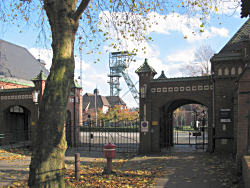 2017
will be held in Dortmund, Germany.
2017
will be held in Dortmund, Germany.
You can find details in English, French and German on their website:
www.unica2017.de/en
The city has excellent travel connections with its own airport and
the larger one at Dusseldorf nearby.
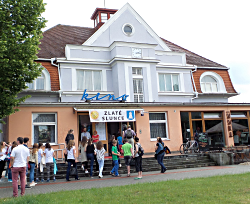 2018
will be in Blansko, Czech Republic.
2018
will be in Blansko, Czech Republic.
The nearest airport is Vienna, but it is also easy to reach from
Brno and Prague airports. The town is on main railway lines and bus
routes.
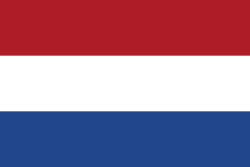 2019
will probably be in Zeist, The Netherlands, though this has yet to
be confirmed.
2019
will probably be in Zeist, The Netherlands, though this has yet to
be confirmed.
The nearest airport will be Schiphol (Amsterdam) which has a good
rail service to Driebergen-Zeist station.
What of 2020?
Would your National Organisation consider organising a UNICA
Congress? We are revising the plans for such events, but based on
the current model you need to plan for a week of film screenings, a
couple of excursions, plus opening and closing events, usually with
food. It costs a great deal, so local sponsorship by government or
commercial organisations is important. If you might consider it,
please contact me and we can discuss the details.
Dave Watterson. UNICA President
This is a slightly edited version of the newsletter written in
December 2016 and sent on 2nd January 2017 to all National
Organisations.